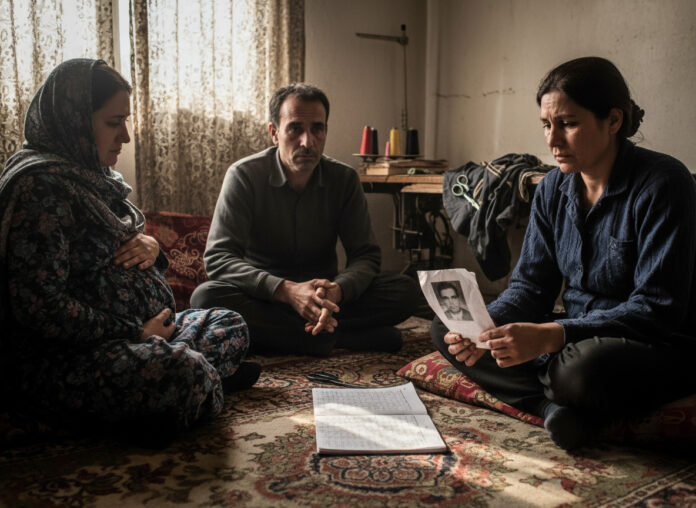Name: Shayesta
Region: Takhar and Kabul Provinces
I live in Kabul and run a tailoring workshop. My husband is the president of one of the private universities in Kabul. After the Taliban came to power, we faced a series of challenges. The Taliban attempted to arrest my husband, but thanks to the mediation of local residents, he was released. We were forced to leave Kabul and move to Takhar, but that too came with its own difficulties. After some time, we returned to Kabul, and my husband resumed his duties.
He couldn’t abandon his work and life, and in addition to his role at the university, he was also involved in business. This meant he had frequent contact with people, especially those from Panjshir, and he tried to support them and address their concerns. After the Taliban took over, the people of Panjshir were subjected to torture under the pretext of resistance and other accusations. They needed support and solidarity. Despite the risks to our own safety, my husband chose to stand by his people, and we decided to return to Kabul.
Since we returned to Kabul, many people have been coming to our home seeking help with their problems. I feel grateful that we can at least stand by our people and try to address their concerns. However, the stories I hear deeply sadden me. People have no food, no jobs, and no security. Families with young daughters live in constant fear that the Taliban might forcibly marry their daughters. Some are even willing to sell their children out of desperation.
Most of the visitors are men who come to my husband for advice and assistance. But a few days ago, two women came to our home. Their husbands had been arrested by the Taliban, and they didn’t even know where they had been taken. Among those detained were two teachers and two ordinary citizens, taken for unknown reasons. One of the women was pregnant and had two small children. Her mental state was extremely fragile. She said they didn’t even have food to eat. From the moment she arrived until she left, she was in tears. She said, ‘If the Taliban have killed my husband, what am I supposed to do? Where can I go in this condition, with nothing in my hands?
Believe me, I can still hear her cries in my ears. Her anxious and distressed face hasn’t left my mind. They were pleading and crying, asking my husband to find them. My husband had previously advocated for individuals detained by the Taliban and had even acted as a guarantor for their release. He promised that woman he would try to locate her husband and, if possible, secure his release from prison through financial or personal guarantees. He hasn’t succeeded yet, but he is trying, and I remind him every day and follow up persistently.
But these four individuals are neither the first nor the last to be arrested by the Taliban. Every day, the Taliban detain and imprison hundreds of Afghan citizens—especially people from Panjshir—under various pretexts. I know individuals who have fled to Pakistan and Iran out of fear of the Taliban. These crimes are ongoing on a daily basis, but because most of these incidents are not reported by the media, even killings, atrocities, and acts of sexual violence committed by the Taliban remain hidden. As a result, both the Afghan people and the international community remain unaware.










